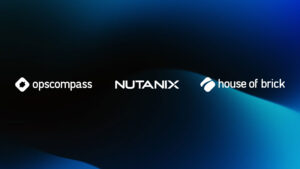Ever since Broadcom snapped up VMware in November 2023, the virtualization landscape has been anything but quiet. The shift from perpetual licenses to a subscription-based model stirred the pot — and now Broadcom is turning up the heat with cease-and-desist letters aimed at users still clinging to perpetual licenses without active support contracts.
If you’re a VMware customer, this might feel like a punch to the gut — but let’s break down what’s happening, why it matters, and how you can protect yourself before it’s too late.
What’s in These Letters?
Broadcom’s latest salvo demands that organizations remove any updates, patches, or enhancements installed after their VMware support contracts expired — with the sole exception of zero-day security fixes.
According to Broadcom, using post-support updates without an active agreement violates intellectual property rights and licensing terms.
This isn’t a gentle reminder; it’s a calculated enforcement tactic to push legacy customers into subscription agreements. Perpetual license holders now face a critical choice: subscribe or get out.
Broadcom’s High-Stakes Play
From Broadcom’s vantage point, this approach drives short-term revenue, and long-term lock-in. From a user perspective, however, it feels more like coercion than customer care.
- Threatening letters are being issued, even to perpetual license customers who haven’t deployed unauthorized updates.
- VMware administrators are being told to roll back security patches that might be tightly integrated into their infrastructure and operations.
- Compliance with Broadcom’s demands could mean system instability, downtime, or elevated security risk.
The result seems to be a virtualization community in disarray. Most of House of Brick’s customers are scrambling to consider their options, and are actively exploring alternatives. Platforms like Nutanix’s AHV are gaining traction as a viable path forward.
The Compliance Conundrum
Broadcom’s enforcement creates a difficult situation for IT infrastructure and operations leaders. Their options seem to be limited to a few choices that each have drawbacks:
- Comply: Roll back updates and risk degrading performance or system stability.
- Negotiate: Attempt to strike a deal with Broadcom for extended support on existing licenses.
- Migrate: Begin planning to re-platform to an alternative hypervisor like Nutanix or other cloud-focused options.
Each path is disruptive. But waiting to act could make it worse — especially if Broadcom triggers a license audit or your environment drifts further out of compliance.
Opscompass Provides Visibility & Protection
Many House of Brick customers are using Opscompass to monitor their VMware environment. Opscompass is an asset intelligence platform that provides autonomous monitoring of VMware architectures, configuration settings, license compliance, and adherence to best practices. Opscompass takes raw usage and entitlement data and transforms it into actionable intelligence that makes a difference for our customers.
Final Thoughts
Broadcom’s cease-and-desist campaign isn’t just a licensing issue — it’s a pivot point for virtualization strategy.
Whether you’re trying to protect existing investments, validate compliance, or plan a virtualization replatform, House of Brick and Opscompass give you the support and intelligence you need to act with clarity — not panic. If you would like to visit with a House of Brick expert to discuss your situation, or to schedule an Opscompass demo, we would love to visit with you.






